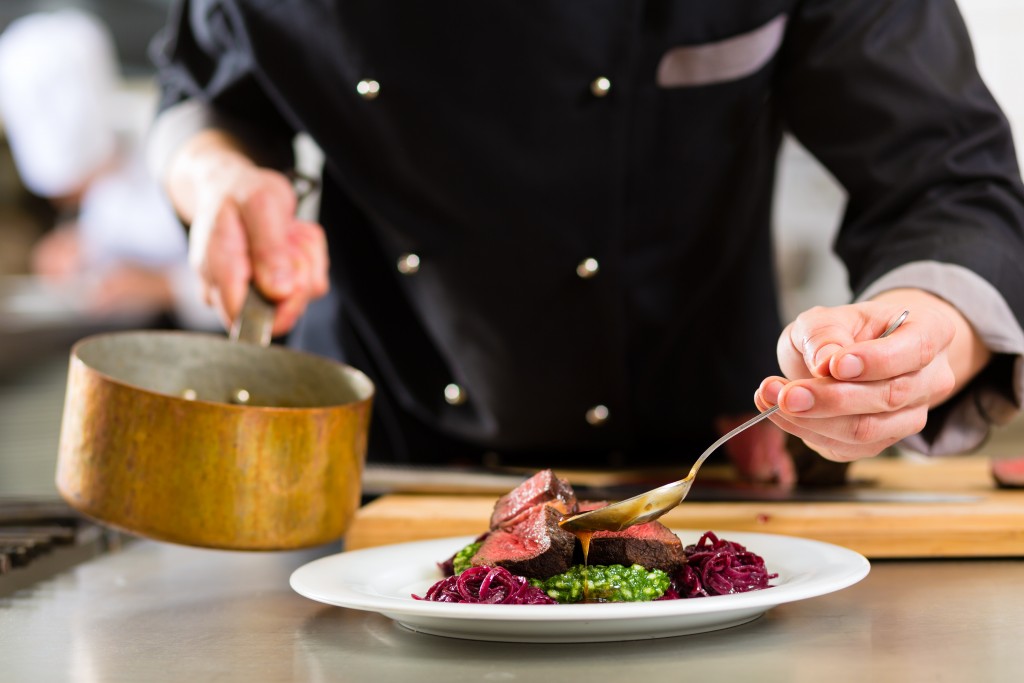You don’t need to be a chef to start your restaurant. You don’t even need to know how to cook to be a successful restaurateur. But if you have a passion for food and the dedication to start your own business, you will be able to open a restaurant that the community will love.
However, there are drawbacks to starting a restaurant business without prior experience, mainly the lack of knowledge of the industry and its inner workings. If you want to run a successful restaurant, here are some suggestions that can help:
1. Learn the basics
Whether you are taking a chicken restaurant franchise opportunity or starting a restaurant from scratch, learning the basics of running a restaurant is a must, especially if you have no prior experience in the food industry. Knowledge about food and cooking is an edge for aspiring restaurant owners, but a restaurant is just like any other business. You need to understand how it works to operate one successfully.
Start by learning the basics of food service management, either by taking a crash course or doing your research. If you decide to do the latter, you can increase your knowledge about restaurant ownership by attending seminars, reading educational material, or talking with people who have their own restaurants.
2. Assess your strengths and weaknesses
Before you start your restaurant, you have to know where your strengths and weaknesses lie. In doing so, you can find ways to supplement the areas where you are deficient and use your strengths to your advantage.
Here are the areas that are essential for running a restaurant:
- Marketing
- Accounting and bookkeeping
- Human resource management
- Customer service
- Research and development
- Menu design
- Organizational management
- Inventory management
After assessing yourself, find ways to utilize your strengths to your advantage. For your weaknesses, you can broaden your knowledge and experience by taking courses and attending seminars. Although you can hire people to manage the areas you are not proficient in, having basic knowledge is still essential.
3. Work with a consultant
 Business consultants can provide unbiased guidance on how you to start and run a restaurant successfully. For aspiring restaurant owners who don’t have prior experience, working with a consultant can increase your confidence and help you gain the knowledge you lack.
Business consultants can provide unbiased guidance on how you to start and run a restaurant successfully. For aspiring restaurant owners who don’t have prior experience, working with a consultant can increase your confidence and help you gain the knowledge you lack.
4. Learn from a restaurant owner
If you know someone who owns a restaurant, ask them to show you the ropes. Spend some time at their place of business and observe how the restaurant works. A restaurant is essentially a machine with different working parts, and even as you stand on the sidelines, you can learn a lot just by watching how the restaurant operates.
5. Start small
If you want to reduce the risk involved in starting a restaurant, consider starting somewhere small. Instead of a full-sized restaurant, try running a food truck or a hole-in-the-wall stall first to learn the basics of a food business. Over time, you will know how a restaurant should be run, and you will be able to gain the knowledge, skills, and confidence that you need to pursue bigger ventures.
6. Listen to your chefs
When you have little to no knowledge about food, aside from eating it, you have to have your ears open to the opinions of the professionals you hire. In everything that involves the kitchen, your chefs’ opinions matter the most. And if you want to ensure that your menu is good and doable, you have to take their opinions to account. After all, they have the experience and skills that you lack regarding the food part of running a restaurant.
7. Don’t rush
Starting a new business is always an exciting experience, but it’s not something you can do in a rush, especially when you don’t know much about running a restaurant. Take things slow and give yourself enough time to plan and research before you execute. In doing so, you can minimize the mistakes you make when you finally launch your restaurant.
As you can see, you don’t have to be a professional chef to start your own restaurant. Even professional chefs don’t always have the skills to create their own food business. However, you need to acknowledge your shortcomings and find ways to address them before starting your restaurant. In this way, you can increase your chances of surviving the first year, which is the most critical period of any business.



